- Home
- Courses
- Specialized Program
- Our Services
-
For Trainer
-
For Student
-
Other
-
- Contact Us
- About Us
- Enquiry Now

Enquiry Form
Fill out this form for enquiry.
Computer Science Course
We found 15 courses available for you
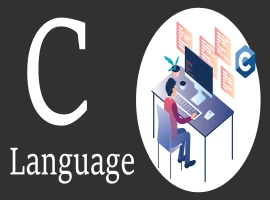
C Language
C is one of the most influential programming languages in the history of computing. C has had a profound impact on the development of many modern programming languages and operating systems. C is often referred to as a "high-level assembly language" because it combines low-level memory access with high-level constructs. This balance allows for efficient programming close to the hardware while providing expressive and portable code. C is primarily a procedural language, focusing on functions and structured programming. It doesn't have built-in support for object-oriented programming or other paradigms common in more recent languages. While C is a mature language with a rich history, it continues to have relevance and a promising future in various aspects: System Programming, Embedded Systems, Real-Time Systems, Legacy Code Maintenance, Education, Open Source Development ,Security Research, while C is not as trendy as some newer programming languages, it maintains its importance due to its efficiency, low-level capabilities, and legacy codebase. It's a valuable language for specific domains, and learning C can be a strong foundation for a career in various fields of software development and engineering.
Unlock the power of C programming, the foundation of modern software development. This introductory course will take you through the essentials of C, providing the skills and knowledge needed to write efficient and reliable code.
- 15 Lessons
- 31 Students
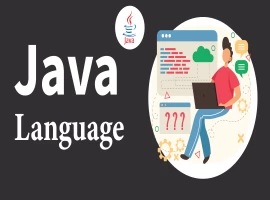
Java
- 15 Lessons
- 31 Students
Java
Java is one of the most popular programming languages in the world. Java is often used in web development, mobile app development, large-scale enterprise applications, and more.Platform Independence: Java is famous for its "write once, run anywhere" capability. Java source code is compiled into an intermediate bytecode, which can be executed on any platform with a Java Virtual Machine (JVM). This portability is one of Java's most significant strengths.Java's platform independence, object-oriented nature, and robust ecosystem make it a versatile language for a wide range of applications. This introduction provides just a glimpse of what Java has to offer. As you delve deeper into Java, you'll discover its powerful features, libraries, and capabilities for various domains of software development,the future of Java looks promising, with ongoing improvements in the language, runtime, and ecosystem. Java remains relevant for a wide range of application domains, and it continues to adapt to meet the needs of modern software development. Whether you are a beginner or an experienced developer, Java is likely to be a valuable skill in your career.
Unlock the power of Java and become a skilled Java developer in just 4-6 weeks. Whether you're new to programming or seeking to expand your skills, this comprehensive course is designed to give you a strong foundation in Java and prepare you for real-world software development.
Join us and embark on your Java programming journey. Start building applications and expanding your horizons as a developer. Don't miss this opportunity to become proficient in Java, one of the most versatile programming languages in the world.
- 15 Lessons
- 31 Students

C++ Language
- 15 Lessons
- 31 Students
C++ Language
C++ is a powerful, versatile, and widely used programming language that builds upon the foundations of the C language while introducing object-oriented programming (OOP) features.C++ combines the procedural and object-oriented paradigms, offering a broad spectrum of applications.C++ is known for its robust support for OOP, allowing for the creation of classes and objects, encapsulation, inheritance, and polymorphism. This promotes code organization, modularity, and reusability.C++ has a promising future with various trends and developments that enhance its capabilities and broaden its application domains. C++ remains a primary language for game development, and its role is set to expand with the growth of the gaming industry, including virtual reality and augmented reality applications.The demand for high-performance applications in areas like climate modeling, simulations, and data analysis will continue to drive C++ usage.With the proliferation of Internet of Things (IoT) devices, C++ is well-suited for developing embedded systems that require efficient resource utilization and real-time capabilities.C++ is used in building network protocols and telecommunications software, and it's expected to remain essential as network technologies advance.C++ plays a significant role in developing autonomous systems, robotics, and drones. Advancements in these fields will maintain its relevance.C++ is a language that balances efficiency, performance, and versatility, positioning it for a bright future. It will remain a crucial language in various industries and serve as a foundation for other developments and innovations. Learning C++ provides a strong skill set for a wide range of career opportunities in the evolving world of software and technology.
Unlock the power of C++, a versatile and high-performance programming language. This course is designed for beginners and covers the essentials of C++ programming. Whether you're new to coding or want to expand your skill set, you'll learn the fundamentals and start building applications.
Start your journey with C++ and unlock new opportunities in the programming world. Learn to build high-performance applications, master OOP, and write efficient code.
- 15 Lessons
- 31 Students

Cyber security
- 15 Lessons
- 31 Students
Cyber security
Cyber Security is the study of how the computer systems and networks can be protected from theft or damage to their hardware, software, or electronic data, and also the disruption of the services that they provide. The study of Cyber Security plays an important role because the use of social media is in demand these days, and there should be control over the data that is shared by people.
The Cyber Security course teaches the students how to identify the computer system vulnerabilities, to recognize digital exploitation, and also prevent damage such as loss of data, and loss of money through viruses. The individuals in the cybersecurity field are taught how to not only avoid cyber-attacks but also how to implement security measures to prevent such an attack preemptively and counterattack against a cyber threat.
- 15 Lessons
- 31 Students
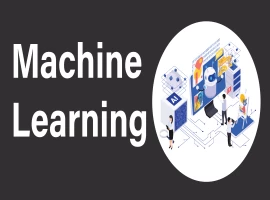
Machine Learning
- 15 Lessons
- 31 Students
Machine Learning
Machine learning is a subfield of artificial intelligence (AI) that focuses on the development of algorithms and statistical models that enable computer systems to improve their performance on a specific task through learning and experience. In other words, machine learning allows computers to learn from data and make data-driven predictions or decisions. Machine learning is a dynamic and rapidly evolving field with vast potential for innovation and impact across various industries and domains. It continues to be a transformative force in the modern world, with an ever-expanding range of applications and advancements.
This machine learning course is designed to provide a comprehensive introduction to the principles, techniques, and applications of machine learning. It covers the fundamental concepts, various types of machine learning algorithms, and practical implementation. The course focuses on hands-on experience, allowing students to work on real-world machine learning projects.
This machine learning course provides students with a solid understanding of machine learning concepts, practical skills, and the ability to apply machine learning in various domains. It serves as a stepping stone for further exploration of advanced machine learning topics and specialization in specific areas of interest.
- 15 Lessons
- 31 Students
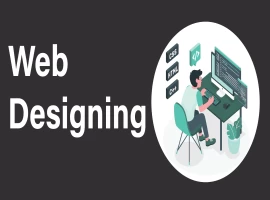
Web Designing
- 15 Lessons
- 31 Students
Web Designing
Elevate Your Design Skills:
Embark on a dynamic learning experience with our "Mastering Web Design" course. Dive into the essentials of HTML, CSS, and responsive design, equipping yourself with the tools to create visually compelling websites. From UI/UX principles to real-world applications, this course blends theory with hands-on practice, culminating in the development of a standout portfolio. Whether you're a beginner or an intermediate designer, "Mastering Web Design" propels you into the world of web design mastery, setting the stage for a creative and impactful career. Enroll now and unlock the potential to shape the digital landscape.
Craft Your Digital Future:
As you progress through the course, you'll not only master design principles but also gain practical experience with industry-standard tools. Whether your goal is freelance success or joining a design team, this course empowers you with the skills and confidence to thrive in the competitive field of web design. Your journey to becoming a proficient web designer starts here enroll today and transform your passion into a tangible and rewarding career.
- 15 Lessons
- 31 Students
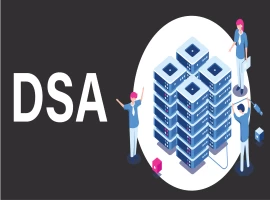
Data Structure and Algorithms
- 15 Lessons
- 31 Students
Data Structure and Algorithms
A data structure is a way of organizing and storing data in a computer so that it can be accessed and modified efficiently. Data structures provide a means to manage and manipulate data in a structured and logical manner. They define the relationship between the data, operations that can be performed on the data, and the rules for data access and storage.
Think of data structures as the architecture of your data, just as a building's architecture determines how the building stands, how people move inside it, and how it interacts with the environment.Data structures are a fundamental concept in computer science and programming. They are the building blocks that enable the efficient organization and manipulation of data, essential for the design and implementation of algorithms. In this comprehensive introduction, we will explore what data structures are, why they are important, and the most common types used in the world of software development.
A data structures course provides students with a strong foundation in understanding how data can be organized and manipulated efficiently, which is crucial for software development and algorithm design. The course content can vary depending on the institution and the level of the course (introductory or advanced).Data structures are the foundation of efficient and organized data management in computer science and programming. Whether you're working on a simple script or building a complex software application, a good understanding of data structures is essential to write efficient, maintainable, and scalable code.
This introduction provides a glimpse into the world of data structures. In the subsequent sections, we will delve deeper into each data structure, exploring their properties, use cases, and implementation details. Understanding and mastering these data structures is a key step toward becoming a proficient programmer and problem solver.
To begin your journey into the world of data structures and algorithms, click the "Start Course" button. If you have any questions or encounter difficulties, don't hesitate to reach out to our support team for assistance.
We hope you find this course both informative and engaging. Happy learning!
- 15 Lessons
- 31 Students

CCNP
- 15 Lessons
- 31 Students
CCNP
Cisco Certified Network Professional (CCNP) is an intermediate level certification offered by Cisco which falls under the Cisco Certified Professional Program. This certification is aimed at full-time network or system administrators, or those who work with local and/or wide-area network (LAN/WAN) infrastructure. Cisco Certified Network Professional program train candidates to plan, implement, verify and troubleshot Local Area Networks (LAN) and Wide Area Network (WAN) at the enterprise level. CCNP certified professionals can effectively collaborate with specialists on advanced security, voice, wireless and video solutions. Cisco Certified Network Professionals can also achieve success in enterprise-level networking roles, such as network administrator, network engineer, network technician, or systems engineer.
- 15 Lessons
- 31 Students
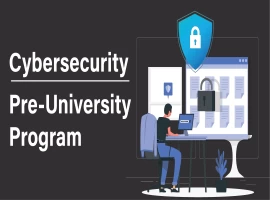
Cybersecurity : Pre-University Program
- 15 Lessons
- 31 Students
Cybersecurity : Pre-University Program
Introduction to Cybersecurity: The course should provide a comprehensive understanding of what cybersecurity is, its importance, and its role in protecting digital assets. This will help students grasp the fundamental and applications of cybersecurity in various domains.
Cyber Threats and Attack Vectors: The course should cover different types of cyber threats and attack vectors, including malware, phishing, and social engineering. This will help students understand the methods used by hackers to exploit vulnerabilities and compromise systems.
Cybersecurity Technologies and Tools: The course should cover various cybersecurity technologies and tools used to detect, prevent, and respond to cyber threats. This will help students familiarize themselves with firewalls, intrusion detection systems (IDS), and encryption techniques.
Cybersecurity Policies and Compliance: The course should cover cybersecurity policies and compliance frameworks, such as ISO 27001 and GDPR. This will help students understand the legal and regulatory requirements for protecting sensitive information and maintaining data privacy.
Cyber Incident Response and Forensics: The course should provide an overview of incident response procedures and digital forensics techniques used to investigate cyber incidents. This will help students learn how to effectively respond to security breaches and collect evidence for further analysis.
Hands-on Experience: The course should offer hands-on experience with cybersecurity tools and technologies. This practical approach will enable students to apply their theoretical knowledge in real-world scenarios, allowing them to develop crucial skills in identifying, preventing, and mitigating cyber threats.
- 15 Lessons
- 31 Students
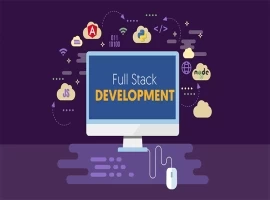
Full Stack Web Development
- 15 Lessons
- 31 Students
Full Stack Web Development
Welcome to the 6-month Web Development Pre-University Program. Designed to equip students with essential skills in web development before entering college, this program offers a comprehensive journey through the fundamentals of building websites. Throughout the first month, participants will delve into the basics of web development, covering HTML, CSS, and JavaScript. Through hands-on activities and guided instruction, students will gain practical experience in creating and styling web pages. By the end of this introductory phase, participants will have developed a solid foundation in web development, setting the stage for continued growth and proficiency in the field as they prepare to embark on their college journey.
- 15 Lessons
- 31 Students
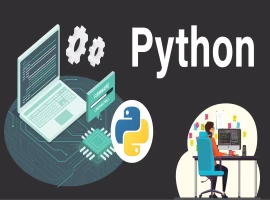
Python
- 15 Lessons
- 31 Students
Python
Python is a versatile and beginner-friendly programming language known for its simplicity and readability. In recent years, it has gained immense popularity across a wide range of industries and applications. This overview will introduce you to the world of Python programming, its features, and its significance in today's technology-driven landscape.
Python is an incredibly versatile language with a wide range of applications, from web development and data analysis to artificial intelligence and automation. Whether you're a beginner or an experienced programmer, Python offers endless possibilities for creative problem-solving and innovation.
Learn Python from scratch and embark on your programming journey. This beginner-friendly course covers everything you need to know to become a confident Python developer. From fundamental concepts to real-world applications, you'll gain hands-on experience in a supportive learning environment.Join us and embark on your Python programming journey. Start coding and bring your ideas to life. Don't miss this opportunity to learn Python, one of the most versatile and sought-after programming languages in the world.
- 15 Lessons
- 31 Students

Cloud Computing
- 15 Lessons
- 31 Students
Cloud Computing
This course provides a comprehensive introduction to cloud computing, exploring the key concepts, services, and architectures that define cloud environments. It is designed for beginners and intermediate learners who want to understand how cloud technologies work and how they can be leveraged in various industries.
- 15 Lessons
- 31 Students
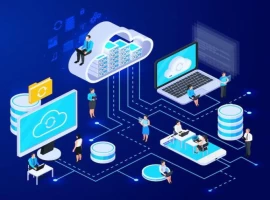
Networking
- 15 Lessons
- 31 Students
Networking
This course offers a foundational understanding of computer networking concepts, protocols, and technologies. It is designed for individuals who are new to networking or those looking to enhance their knowledge of how networks operate. The course covers both theoretical concepts and practical applications, providing a comprehensive guide to modern networking.
- 15 Lessons
- 31 Students

Artificial Intelligence
- 15 Lessons
- 31 Students
Artificial Intelligence
This course provides an in-depth introduction to Artificial Intelligence (AI), covering its core concepts, algorithms, and applications. It is designed for beginners and intermediate learners looking to understand how AI works and how it is transforming various industries. The course emphasizes practical AI techniques, including machine learning, neural networks, and natural language processing.
- 15 Lessons
- 31 Students
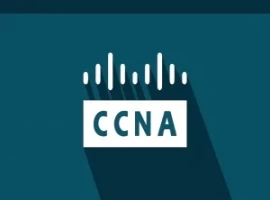
CCNA
- 15 Lessons
- 31 Students
CCNA
This comprehensive CCNA course is designed to equip you with the foundational knowledge and practical skills required to install, configure, and troubleshoot small to medium-sized networks. Whether you’re an aspiring network engineer, IT professional, or someone looking to start a career in networking, this course will provide you with the technical expertise needed to become CCNA certified.
- 15 Lessons
- 31 Students




